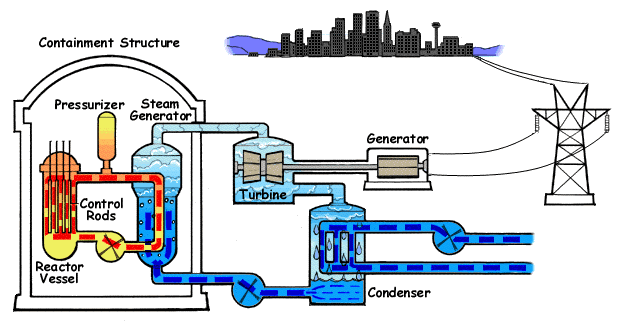Today (June 29, 1931) is the birthday of Padma Bhushan Award-winning Pokhran nuclear scientist Padmanabhan Krishnagopalan Iyengar.

Padmanabhan Krishnagopalan
Iyengar was born on June 29, 1931, in Tirunelveli, Tamil Nadu. Iyengar joined
the Tata Institute of Basic Research (TIFR) in 1952 as a junior research
scientist in the field of nuclear energy. Carried out various types of research
on neutron scattering. He was later transferred to the nuclear power plant,
which he created in 1954. Renamed Baba Atomic Research Center. In 1956,
Iyengar trained in Canada. Bertram Neville, the winner of the Nobel Prize in
Physics, worked at the Brockhouse. Contributed to lattice-breaking research on
lattice mechanics in germanium. At DAE, he formed and led an internationally
recognized team of physicists and chemists for their original research
contributions in this field. In the 1960s, he designed the Purnima nuclear
reactor locally and headed the team that successfully operated the reactor at
BARC on 18 May 1972.

When Ramanna took over as the
director of the Baba Atomic Research Center in 1972, the post of Director of
the Physics Committee (PG) was handed over to Iyengar. He was one of the
leading scientists in the development of India's first nuclear device. The team
under Raja Ramanna tested the device on May 18, 1974, under the code name
Smiling Buddha. Iyengar played a vital role in the peaceful nuclear explosion at
Pokhran-1. For this, he was awarded the Padma Bhushan in 1975. Iyengar became
the director of the Bhabha Atomic Research Center in 1984. As a director, one of
his first tasks was to assume responsibility for the construction of polar
reactors, the completion of which was then questionable. It was under his
leadership that it came to a successful conclusion. Realizing the importance of
transferring newly developed technology from research institutes to industry,
he introduced a technology transfer cell at BARC.


He encouraged basic research in molecular biology, chemistry, and material science. Made new
nuclear technologies such as lasers and accelerators. This led to the
establishment of a new center for advanced technology in Indore. In 1990,
Iyengar was appointed Chairman of the Atomic Energy Commission of India and
Secretary of the Department of Atomic Energy. He was also appointed president
of the Atomic Energy Corporation of India. Under his leadership, the Department
of Atomic Energy actively pursued the nuclear program by operating two new
reactors at Narora and Khakrabar and continued with the development of new
reactor systems such as liquid-sodium-based reactors. Equal importance was
given to the advanced production of heavy water, nuclear fuel, and specialty
nuclear products. He also initiated plans to export heavy water, research
reactors, and hardware for atomic applications to obtain valuable
foreign exchange.


Commenting on Iyengar's
involvement in Indian cold fusion research, the Indian newspaper Daily News
& Analysis wrote, "Iyengar carried out cold fusion experiments in the
1980s to prove the hypothesis that nuclear fusion could occur at normal
temperatures under certain conditions. Padma Bhushan Award (1975), Patnagar
Award (1971). Recipient of honors and distinctions. In addition to serving on
various national committees, Iyengar's later interests include
advances in nuclear technology for nuclear applications, nuclear policy and
national security, and scientific education, with a focus on the use of science in nation-building.


Participated in various
international meetings on non-local issues. Most recently, as the founding
trustee of the Augustine International Foundation, he focused on promoting a
creative and scientific attitude in rural education and rural children and
government school teachers. He was instrumental in securing the support of the
Homi Bhabha Center for Science Education to launch Augustine's Rural Science
Exhibitions and its first mobile science laboratory in 2002. Padmanabhan
Krishnagopalan Iyengar, a renowned Indian nuclear scientist, passed away on
December 21, 2011, in Mumbai at the age of 80, as he opposed the Indo-US
civilian nuclear deal in favor of the United States.
Source: Wikipedia
Information: Dr. P. Ramesh, Assistant
Professor of Physics, Nehru Memorial College, Puthanampatti, Trichy.
Get information like this
https://t.me/joinchat/jpqj3jQLN51kYTk9
Join Telegram Group.
https://chat.whatsapp.com/HHC5m0Jz3Ue1E8ilgta0YT
Join WhatsApp Group
Thanks.
Also, Read
🛑👍 CSIR-NET Physics Materials and Problems
🛑📕 21 GB and Hundreds of Physics E-Books Collection.
🛑🛥️ How does an Electric Motor work? (DC Motor).
🛑🤹♂️ Science Academies' Summer Research Fellowship Programme for Students and Teachers 2022.
🛑🔌 How does a Transformer work - Working Principle electrical engineering.
🛑🎙️ Transistors Explained - How transistors work.
🛑🔥⚡ How Thermocouples Work - basic working principle.
🛑🔌 Voltage Explained - What is Voltage? Basic electricity potential difference
🛑🔌 What is CURRENT– electric current explained, electricity basics.
Also, Read
🛑👍 CSIR-NET Physics Materials and Problems
🛑📕 21 GB and Hundreds of Physics E-Books Collection.
🛑🛥️ How does an Electric Motor work? (DC Motor).
🛑🤹♂️ Science Academies' Summer Research Fellowship Programme for Students and Teachers 2022.
🛑🔌 How does a Transformer work - Working Principle electrical engineering.
🛑🎙️ Transistors Explained - How transistors work.
🛑🔥⚡ How Thermocouples Work - basic working principle.
🛑🔌 Voltage Explained - What is Voltage? Basic electricity potential difference
🛑🔌 What is CURRENT– electric current explained, electricity basics.

.png)
.jpg)
No comments:
Post a Comment